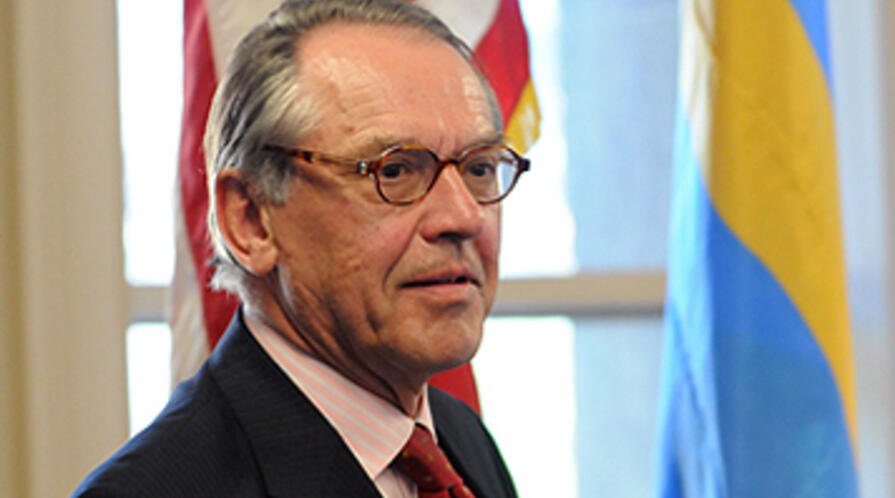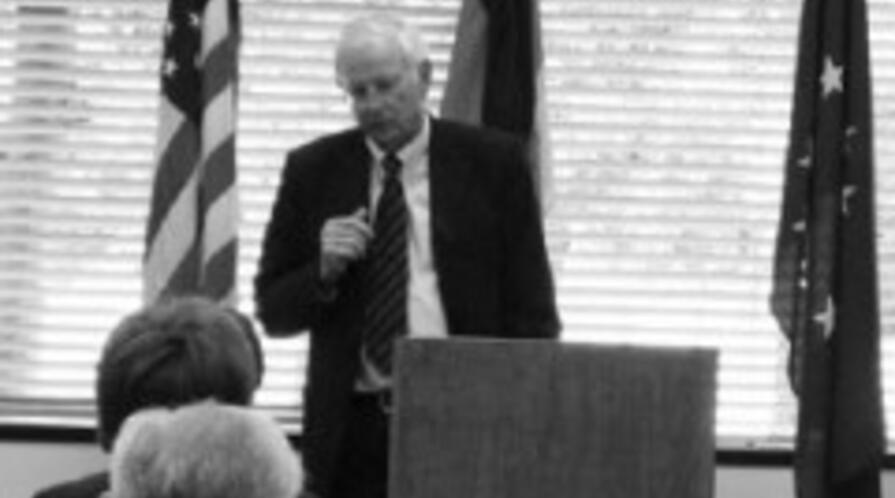The Forum on Contemporary Europe (FCE) achieved two major goals in
2006–2007, by developing FCE into a trans-Atlantic hub for policy and academic
leaders and guiding research affiliates to answer pressing questions about European
Union membership. To do so the forum launched and greatly expanded research
and public programs on Europe’s Eastern, Scandinavian, and Iberian regions and
addressed dramatic change and instability in the west in governing coalitions and
the social fabric of Europe’s traditional powers.
Forum projects addressed several important, interrelated questions. Can the EU
integrate its members into a unified polity and civic society, or should it retreat to
a sole project of a common market? Should and can the EU Commission form a
European foreign policy? How far should Europe’s union extend—to Turkey, to the
former Soviet republics, to the North African Maghreb? Answers to these questions
have implications for trans-Atlantic and EU-NATO-UN relations and for postindustrial
labor, immigration, and welfare policy, democratization and human rights
initiatives, and regional crisis intervention. An engaging and productive year of
analyzing Europe’s policy dilemmas has clarified the benefits and burdens of the
emerging European model of political, social, and economic membership.
Western Europe: Elections and Uncertain Promise
On Jan. 1, 2007, Europe enlarged its union to 27 nations. As Europe extended its
borders from Portugal to Bulgaria, and from Sweden to Greece, the EU Council of
Ministers reiterated its commitment to shepherd seven more nations, including
Turkey, to meet the Copenhagen Criteria for membership. However, elections,
resignations, and new leaders in Europe’s traditional powers have clouded this
optimistic vision, and the forum addressed pressing concerns along with the
promise of expansion.
Four highly anticipated forum events—the French presidential election roundtable,
a Europe Now: Integration, Society, and Islam in a New Europe lecture by Daniel Cohn-Bendit, a Payne Lecture by Ian McEwan,
and an address by German Ambassador Klaus Scharioth—raised issues for all
forum programs. Throughout the year, the forum invited a spectrum of research
centers to co-sponsor its events, including CISAC, CDDRL, the Program on Global
Justice, the Woods Institute, the France-Stanford Center, Humanities Center, Abbasi
Program on Islamic Studies, Mediterranean Forum, Stanford Law School, and the
Graduate School of Business.
On prospects for integrating Europe’s polity and society, Cohn-Bendit and McEwan
spoke on separate occasions to overflow FSI audiences. Cohn-Bendit, head of the
European Parliament Greens/New Alliance party, noted the diverse political cultures
in Western and Eastern Europe, as well as the region’s significant Muslim community,
and envisioned the EU as the institution to create a polity governed federally and
based nevertheless on commonly agreed upon European values. McEwan, delivering
a preview of a work to be published soon, characterized post-9/11 Western modernity
by tracing a history of fundamentalism since the origin of the Christian West.
Communalism and exclusive claims to truth, in McEwan’s reading, are organic to the
West and may plague the rationalizing project of a new Europe. Scharioth discussed
German Chancellor Angela Merkel’s ambition to revive a European constitution.
Merkel, the first German post-war leader to have been a citizen of the GDR, sees
integration not as an option but as a necessity after 1989 and is brokering with a
group of European partners to carry the project forward. The chancellor may gain support from new French President Nicolas Sarkozy, who proposes to move forward
by avoiding popular referenda in favor of parliamentary treaties.
On post-election France, five affiliated researchers from Stanford and UC Berkeley,
representing different disciplines across the humanities and social sciences, joined
for a roundtable discussion of the conduct and consequences of the French presidential
election. Speaking to a standing-room-only audience, the panel debated
voting patterns and the future of the main parties and offered an insider’s early
look at where France is headed and the implications of the Sarkozy presidency for
Francophone, EU, and trans-Atlantic relations.
France, of course, is one of the last of Europe’s major powers to elect a leader
with no personal memory of World War II. Sarkozy, like Merkel, Blair, and Zapatero,
also held government posts during Europe’s paralysis in the Balkan genocide. The
boast that the EU eliminated war from Europe may therefore be increasingly less
compelling for Europe’s new generation of leaders. Without articulating the origins
of his policy, this new French president makes it difficult to divine his view of Europe.
It has been noted that Sarkozy, in his inaugural speech, declared that “France is
back in Europe”; however he confused both sides of the Atlantic on what “in Europe”
means to him by categorically rejecting the EU Commission’s commitment to
pursue Turkish accession. It remains to be explained how he understands what
France is in a European polity and economy, who the French are in a post-colonial
immigrant society, and how France will position itself as both a global actor and
a trans-Atlantic partner.
The forum planned the faculty roundtable as the first pillar of a multi-year study
of European elections, to continue in 2007–2008 with a major address on reform at
the heart of European political culture. Next year, the forum will host an address by
the president of France’s École Normale Supérieure on the vision of a new European
liberalism—a political philosophy responding to European post-war socialism and
U.S. neo-conservativism and labeled by some political theorists as “social liberalism.”
This will coincide with programs on the United Kingdom and its run-up to elections
and what could amount to a referendum on the earliest of the post-war generation
governments—the Blair administration and Britain’s New Labor. Also planned is
the forum’s 2007–2008 “Europe Now” lecture by Sweden’s former foreign minister
Jan Eliasson, who currently serves as the U.N. special envoy for Darfur.
New Europe: Expansion and Global Reach
Finally, this author is conducting a study of European Union international intervention
missions. The initiative to form a common European security and defense policy
(ESDP), and to marshal member nation troops, is perhaps the greatest challenge
confronting European ambition to address global issues. In 2007, the EU Council
noted, “The idea that the European Union should speak with one voice in world
affairs is as old as the European integration process itself.” Our study investigates
case studies of EU missions in Kosovo, Congo, and Darfur, in which EU policies
fluctuated between robust and tentative goals, revealing divisions on the goal of
acting as one within and beyond Europe.





